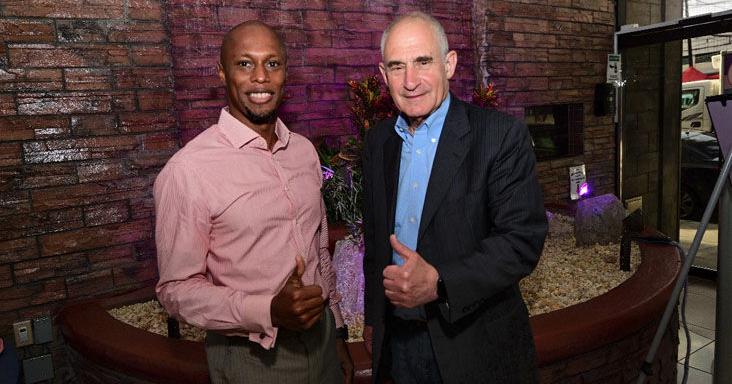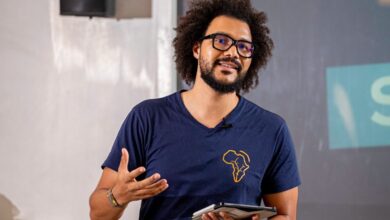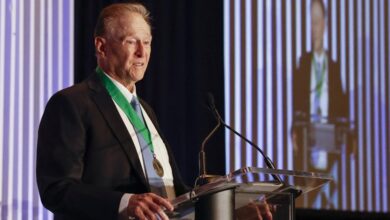Building an entrepreneurial ecosystem | Local Business

WALTNEL Sosa was contemplating strategies for Trinidad and Tobago’s development when he stumbled upon an article discussing a town in Colombia called Manizales.
“As they described Manizales I thought it was like T&T, one industry, which is coffee in their case, oil and gas in our case, but the social challenge that they were facing was similar to what we were facing,” Sosa said.
“And there was a group of people who found a way to be able to galvanise their economy and it had an effect on the society and I said ‘but this is exactly what I was trying to figure out what to do here’,” he said.
So, Sosa decided to reach out to the team responsible for the change experienced in Manizales.
While doing so, he came across the name of someone he was familiar with: one of his former professors at the Harvard Business School, Dr Daniel Isenberg.
But after talking to Isenberg and reading the article, Sosa had a nagging feeling that the story of Manizales was just too good to be true.
Isenberg invited Sosa to Manizales to participate in an event commemorating their five years in the town.
“What I saw there blew my mind, because in the space of five years the people in this town went from thinking they were nobodies to being ‘we have something to prove to the entire world’,” Sosa said.
“And the impact is not just felt by the businesses it is felt by the policymakers, it is felt by academia there are five schools there and the courses are full,” he said.
Developing an ecosystem
Isenberg has been immersed in the field of entrepreneurship for 40 years. In 1987, he relocated to Israel and taught the pioneering course on technology entrepreneurship.
“That was my way of learning about entrepreneurship. I was involved in helping government and quasi-government agencies to figure out what they wanted to do with entrepreneurship and I experienced on my own skin so to speak how an entrepreneurship ecosystem evolves,” he said.
After returning to Harvard, Isenberg joined Babson College in 2009. Babson College is renowned for its focus on entrepreneurship.
“We thought about all the factors that create an upsurge in entrepreneurship in society and realised that I had been through it in Israel. It was pretty amazing but it evolved in a messy way. It worked despite the challenges,” he said.
In 2009, Isenberg developed the Scalerator and eventually conducted a series of pilot projects in Saudi Arabia, Tanzania, and Puerto Rico.
“Those did not really work but we learned some very important things,” he said.
“If we define entrepreneurship as start-ups only, then we will never be able to achieve the results that we need. You have to define entrepreneurship as growth not as start,” Isenberg said.
Isenberg identified six domains within the entrepreneurial system: a conducive culture, enabling policies and leadership, availability of appropriate finance, quality human capital, venture friendly markets for products, and a range of institutional supports.
“It is very useful to have a purpose that is a unified purpose. It is that more and more local companies will grow more and more rapidly to the benefit of all. Not necessarily for the benefit of all but to the benefit of all. it is a subtle but important difference. It does not matter if they intend to benefit all but by growing, this broad base of companies, of all sizes, ages sectors, it benefits all. I won’t say it is a panacea but it has a huge unique benefit,” he said.
After witnessing and hearing about the initiatives, Sosa felt the economic benefits could positively impact other challenges facing the country.
So he attempted, albeit unsuccessfully, to persuade companies to buy into the programme.
UTC to the rescue
Sosa said he had nearly given up hope of implementing the idea locally until he spoke with Nigel Edwards, executive director of the Unit Trust Corporation.
Edwards gave the green light for a pilot programme.
That pilot began in 2020 during the Covid-19 pandemic. This did not impede the programme’s progress.
“We needed to have success to have other people come on board and we were surprised at the amount of success,” Sosa said.
The three-month programme trained 49 business professionals, across 11 participating companies from the Food and Beverage, ICT, Technology and Telecommunication solutions and Engineering sectors.
The Scale up Model focuses on the 3Cs, Customers, Capacity and Cash and aims to provide companies with practical skills in sales and marketing, organisational development, and entrepreneurial finance to transform businesses to achieve full potential.
“UTC is committed to being a catalyst in driving social change, supporting innovation, creating a community of exports and wealth creation at a national level,” Edwards told the first graduating cohort.
The Ministry of Trade and Industry bought into the vision and partnered with the UTC for the second cohort of the programme.
On April 18, the UTC and the Ministry of Trade celebrated the graduation of the third ScaleUpTT cohort.
The feature speaker was Marcela Escobar, executive director of Scale Up Manizales.
Escobar said developing an entrepreneurship ecosystem is simple but not easy.
“The way for economic growth is working together,” she said.
Escobar said Manizales had once ranked as the second-highest city for unemployment in Colombia and faced other challenges such as crime and corruption.
Now, they are first in the country for Ease of Doing Business and the Social Progress Index, and other key indicators. She said this achievement was not accidental but rather a direct result of the development of the entrepreneurship ecosystem.
Escobar said the ecosystem requires an all-hands-on-deck approach, with government, the private sector, and educational institutions joining hands to address the problems head-on as one.
“We are an alliance for the development of the entrepreneurship ecosystem in Manizales. We generate the conditions to create and grow companies. We are sure knowledge and action transform economic development,” she said.
Escobar said they have 2,100 entrepreneurs in the early stage and 3,500 students learning about entrepreneurship. She added that 141 companies also provided mentors to support the process.
Isenberg said based on ongoing conversations, a number of commercial banks and other government and quasi-government entities have expressed interest in helping build the entrepreneurship ecosystem.
“I think it can happen here. I really do. It is not easy but it is clear how to do it and you can imagine the ripple effects it can have,” Isenberg said.
“I equate it to fitness training; everybody know what you need to do to be healthy, you have to eat right, exercise, sleep well, have a good social life but sometime you need a fitness training to get you into shape and keep you on track, he said.
Sosa said he believes the programme will create an ecosystem that benefits all.
“We want to create an avalanche that creates an unstoppable force for good not just for the economy but for the society,” he said.



